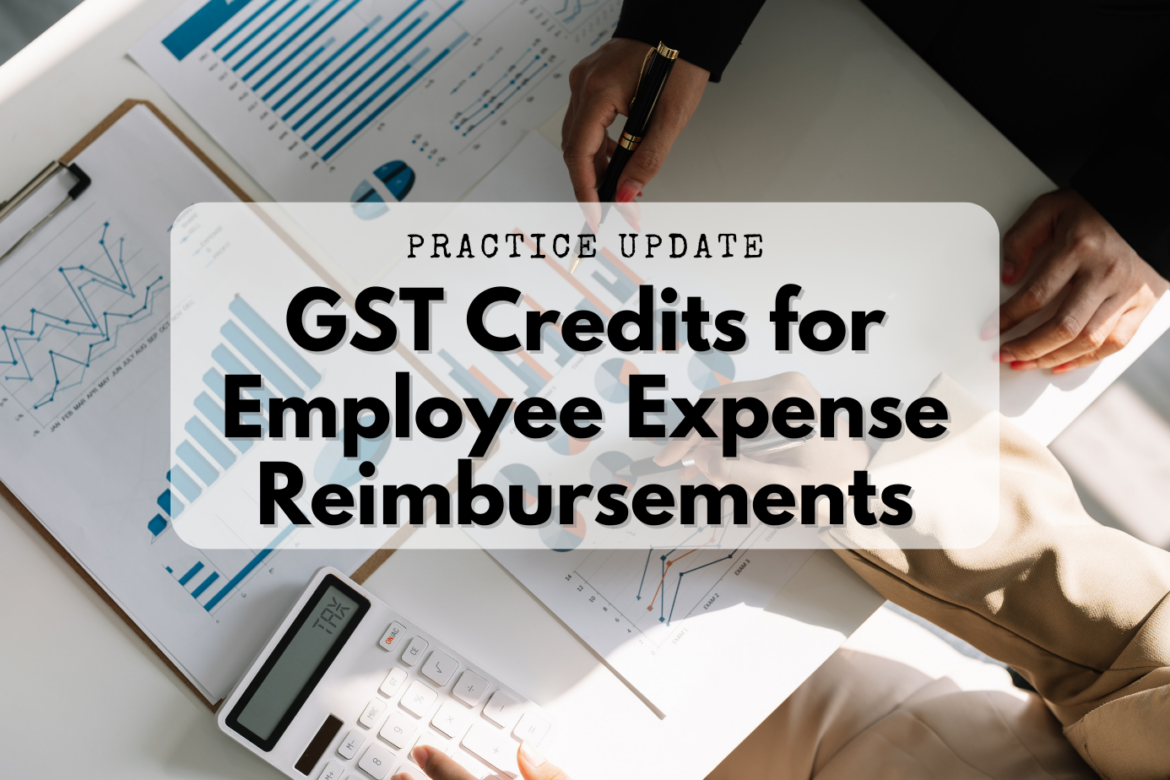When reimbursing employees, employers may be entitled to claim GST input tax credits for the expenses that are directly related to their business activities.
A “reimbursement” is provided when a taxpayer pays their employee the amount, or part of the amount, of a particular work-related purchase they make.
Employers are not entitled to a GST input tax credit if they pay their employee an allowance, or make a payment based on a national expense, such as a cents-per-kilometer payment, travel or meal allowance.
An “allowance” is provided when a taxpayer pays their employee an amount for an estimated expense without requiring them to repay any excess.
Taxpayers are expected to hold sufficient evidence to substantiate their claim, such as a tax invoice for the purchase that is being reimbursed.











